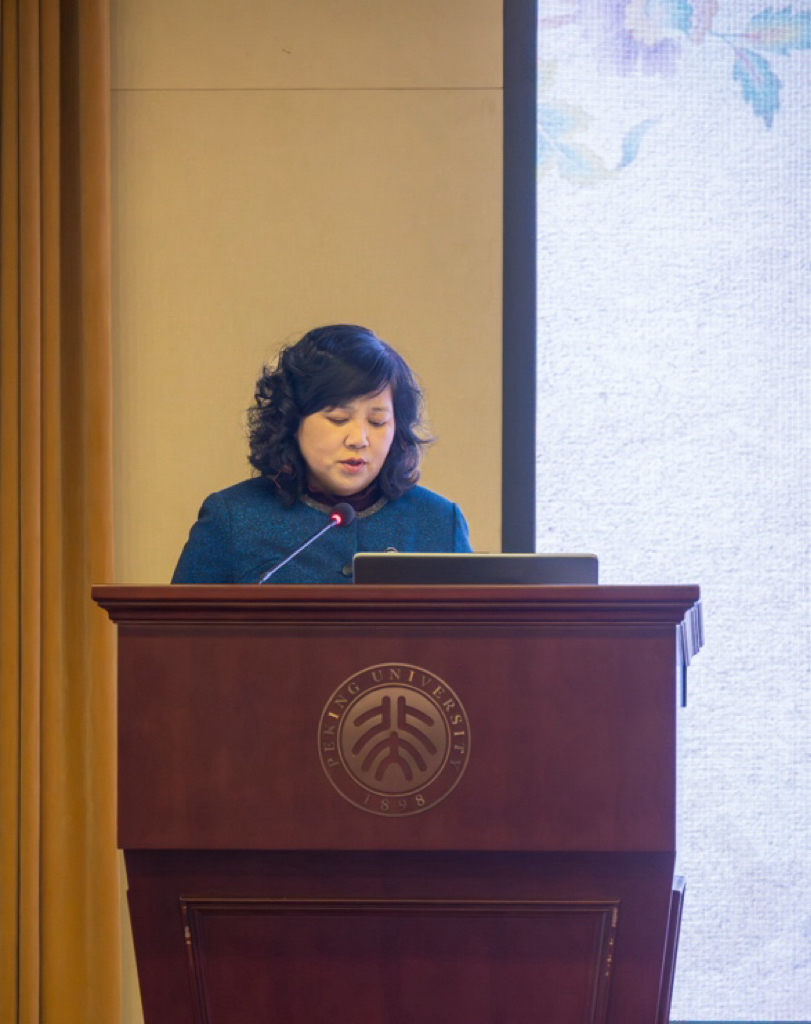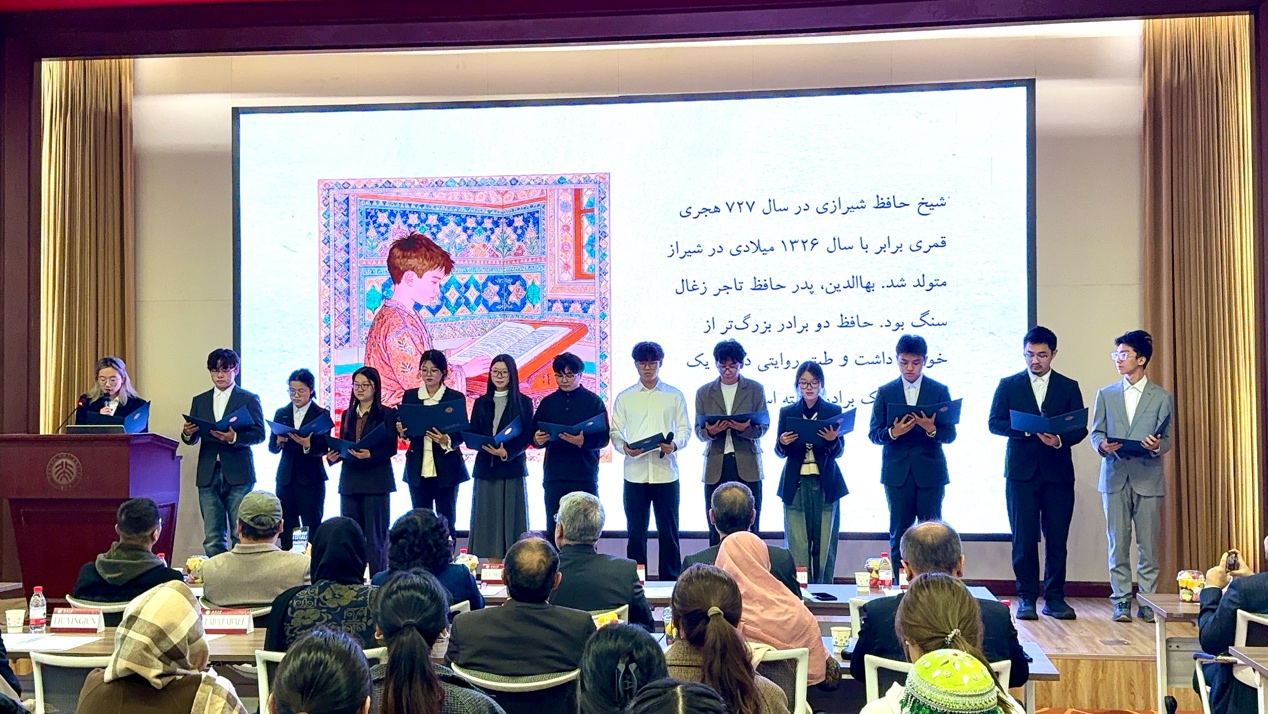Hafez is a famous 14th-century Iranian poet. He holds an esteemed position not only in the history of Persian literature but is also cherished by people worldwide. Every year on October 12th, officially designated as "Hafez Day" in Iran, and around this date commemorative events of Hafez are held in Iran and around the world.
On the morning of October 24, 2025, the Symposium in Commemoration of Hafez was held in Room 208 of the Democracy Building at Peking University. The event was jointly organized by the Section of Persian Language and Culture, School of Foreign Languages and the Institute of Iranian Culture Studies at Peking University.

The symposium was attended by Prof. Li Shujing, Secretary of the Party Committee of the School of Foreign Languages, Dr. Abdolreza Rahmani Fazli, Ambassador of the Islamic Republic of Iran to China, Dr. Nematollah Iranzadeh, Cultural Counselor of the Islamic Republic of Iran to China and faculty and student representatives from Peking University, Beijing Foreign Studies University, the University of International Business and Economics, Beijing Language and Culture University, Beijing International Studies University and Tianjin Foreign Studies University.
The symposium was chaired by Dr. Shi Guang, Director of the Section of Persian Language and Culture and the Head of the Institute of Iranian Culture Studies at Peking University. In the opening remarks, Pro. Li Shujing extended a warm welcome to Ambassador Fazli and his delegation, and introduced the development of the School of Foreign Languages and Persian language teaching at Peking University. Dr. Liu Yingjun, Director of the Department of West Asian Languages and Cultures, followed with a speech emphasizing the deep poetic connections between China and Iran and highlighting the achievements made in the translation, introduction, and study of Persian literary works in China over the past decades.

During the event, students majoring in Persian at Peking University introduced Hafez's life through recitation. Faculty representatives from various universities delivered speeches exploring the philosophical depth and poetic value of Hafez's works, while student representatives paid tribute to the poet through diverse performances including recitations, theatrical pieces, and songs.

In his concluding address, Dr. Fazli congratulated all parties on the successful hosting of the symposium and spoke highly of the active participation and brilliant presentations by faculty and students from all universities. He fully acknowledged the achievements made by Peking University and other universities in Persian language teaching, academic research, and cultural exchange, and expressed appreciation for the organizers' dedicated efforts in advancing Sino-Iranian people-to-people exchanges. After the symposium, the Embassy of the Islamic Republic of Iran in China presented Persian-language books to the guests and exchanged souvenirs with representatives from the participating universities.
The symposium fostered connections among Persian language faculty and students from various universities and enhanced the students' literary competencies, thereby injecting new vitality into Sino-Iranian cultural dialogue and mutual learning between civilizations.
By Ru Chaowei
Photo by Wu Xiaolong
